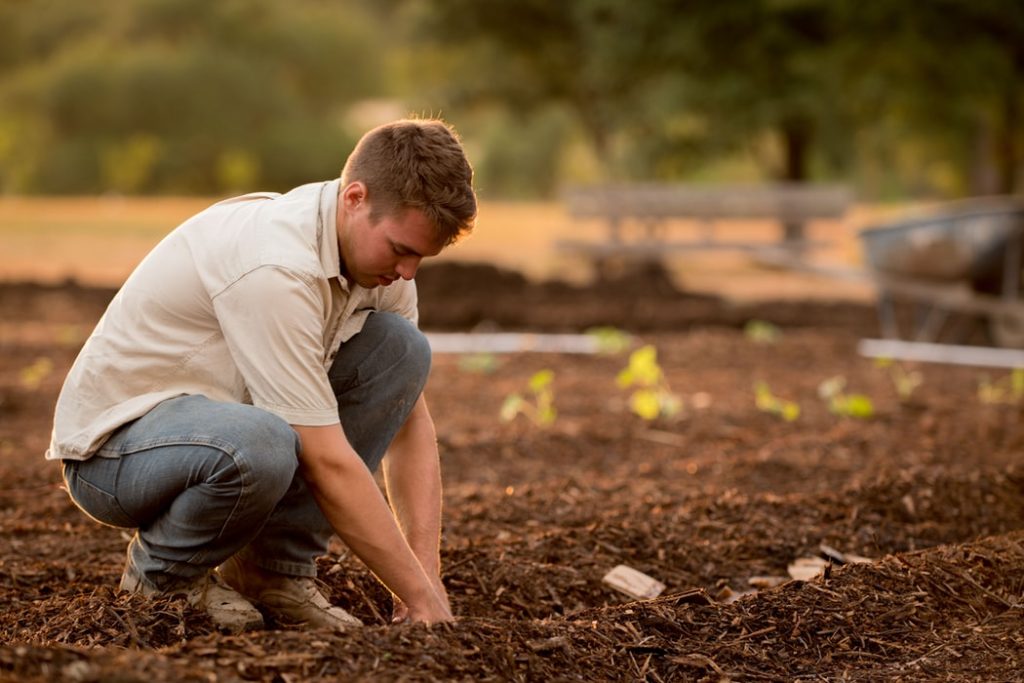Gardening is a fun way to connect with the environment, as well as be one with God’s beautiful natural creations. Planting and gardening are considered relatively low-risk activities, however, taking precautionary measures in your garden helps you keep extra safe.
Unbeknown to most people, garden preparation usually requires the use of potentially harmful tools. The physical effort you exert you need to plant seeds and other forms of plants is another cause of concern, especially for those who have health and mobility problems. To make sure you are safe, follow these steps for more enjoyable moments in your garden. Make sure to read further!
Stay safe under the sun
Planting and growing plants, flowers, and even grasses like Kentucky bluegrass sometimes require you to bask in the scorching heat of the sun. Therefore, you will need protection against ultraviolet radiation to avoid getting sunburn and other skin problems. To mitigate the side effects of ultraviolet radiation, follow these steps:
- Always wear a long-sleeved shirt, broad-brimmed hat, and trousers that cover the entire legs
- Apply broad-spectrum SPF 30+ sunscreen 20 minutes before going outside. Make sure to reapply regularly.
- Wear sunglasses. Ultraviolet radiation can cause temporary blindness and increase the likelihood of cataracts.
- As much as possible, avoid gardening during the hottest hours of the day, which is from 10 am to 2 pm.
- Stay hydrated. Carry a bottle of water with you whenever you are gardening.
Use the right gardening tools
It may not seem like it, but the beautiful garden holds a handful of potential threats. Thorns, sharp leaf edges, and many more can wound you. To remain safe and clean from the garden mess, follow these safety measures:
Wear proper gloves to reduce the risk of wounds, blistering, and the harmful effects of pesticides, bacteria, fungus, and fertilizers in the soil. Even the smallest cut can be the gateway to harmful microorganisms, which can give you a major hand infection. When working with thorny plants, put on leather gloves for extra protection. When working with garden chemicals, rubber gloves are ideal.
- Use a rake or hand shovel when digging, since sharp debris may cut your bare hands.
- When purchasing loppers, shears, or pruners, go for those that have safety locks.
- Steer clear from products with form-fitting handles. Too large or too small can be stressful for your hand, hence slow down your gardening tasks.
- Make sure to always unplug electrical gardening tools and keep sharp tools away from children.
Check your posture
Your posture refers not only to your body position but also refers to how are your wrists positioned when using hand tools. Scientific researches have shown that people lose up to 25% of their grip strength when they usually do things with bent wrists. To make sure your posture is at its best, consider following these safety precautions:
- Lessen your gardening sessions. Don’t do everything all at once. If possible, segment your gardening sessions throughout the day.
- Consider warming up before gardening. Do basic wrist and back stretches.
- Don’t dwell too much on a single task. Rotate your activities to avoid repetitive movements. For example, after 10 minutes of shoveling, spend the next 10 minutes raking.
- Bend at the knees. Make sure to not strain your back when lifting heavy materials.
What to do in the event of injury?
If you accidentally had a minor cut, bleeding will often stop when you apply direct pressure using a clean cloth on the affected area. You should seek immediate emergency help if:
- You feel persistent tingling or numbness on the finger that has a cut, or if you struggle with moving the finger
- You are not sure of your tetanus immunization status
- You forgot to thoroughly clean your wound by rinsing it with clean water and mild soap
- Direct pressure doesn’t stop the bleeding for more than 15 minutes
For older people, make sure to attend to any form of injuries or cuts. If your aging loved one is suffering from memory loss, make sure to secure the gates and fences. Wear non-slip boots or slip-on, and make sure that the walkways are slip-free.
Gardening is fun but is more enjoyable with the right tools and by following proper safety precautions.
